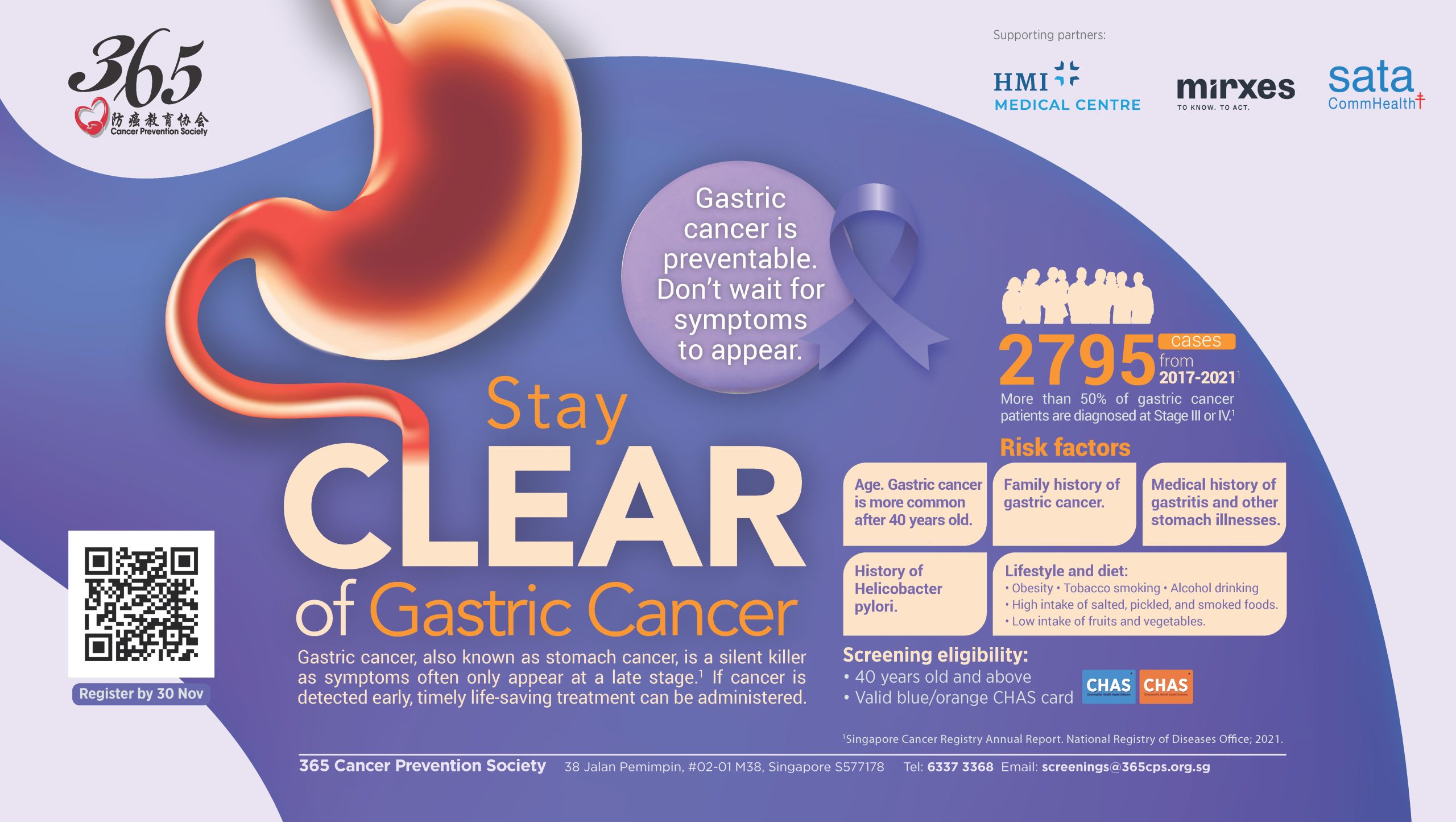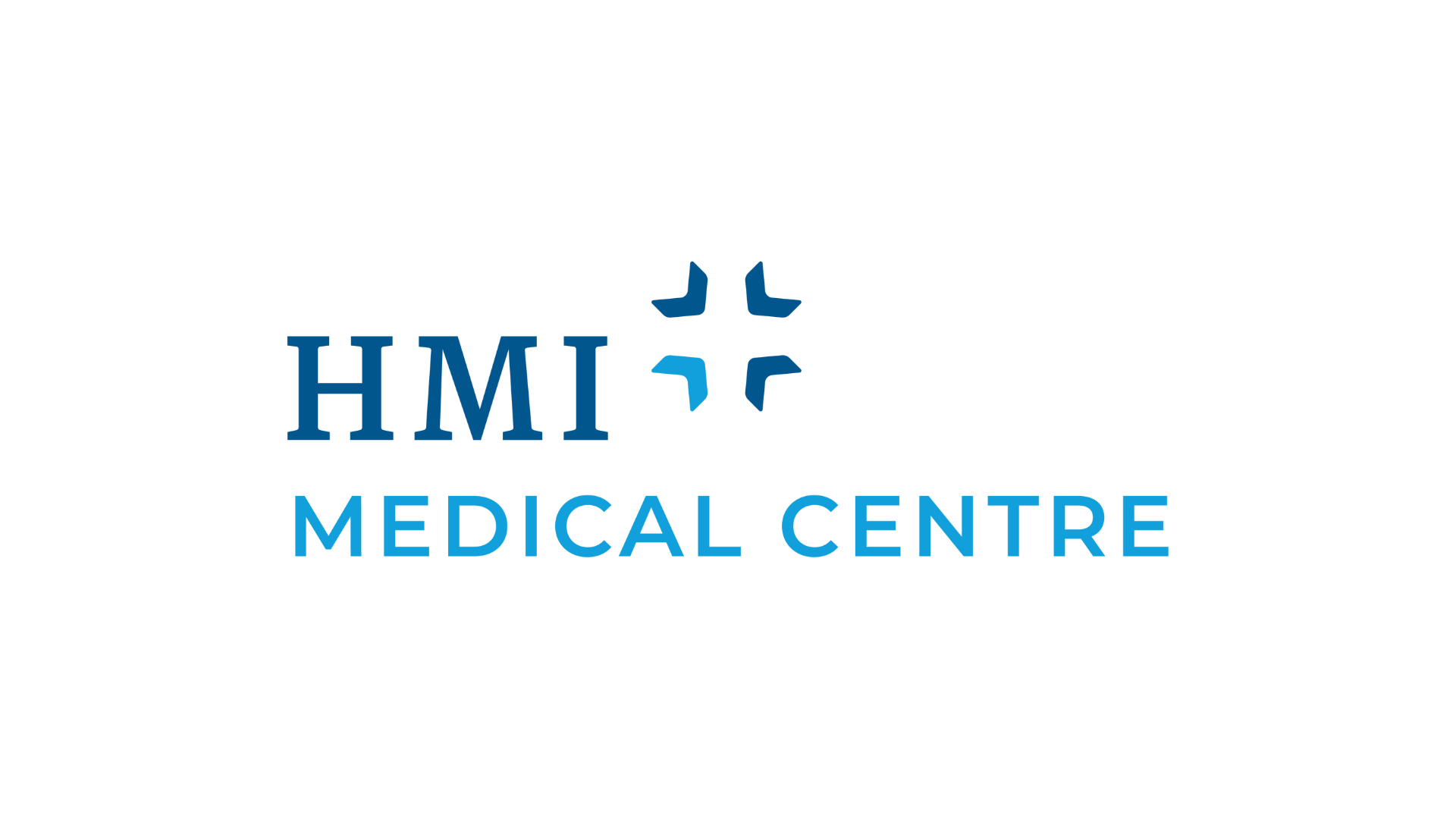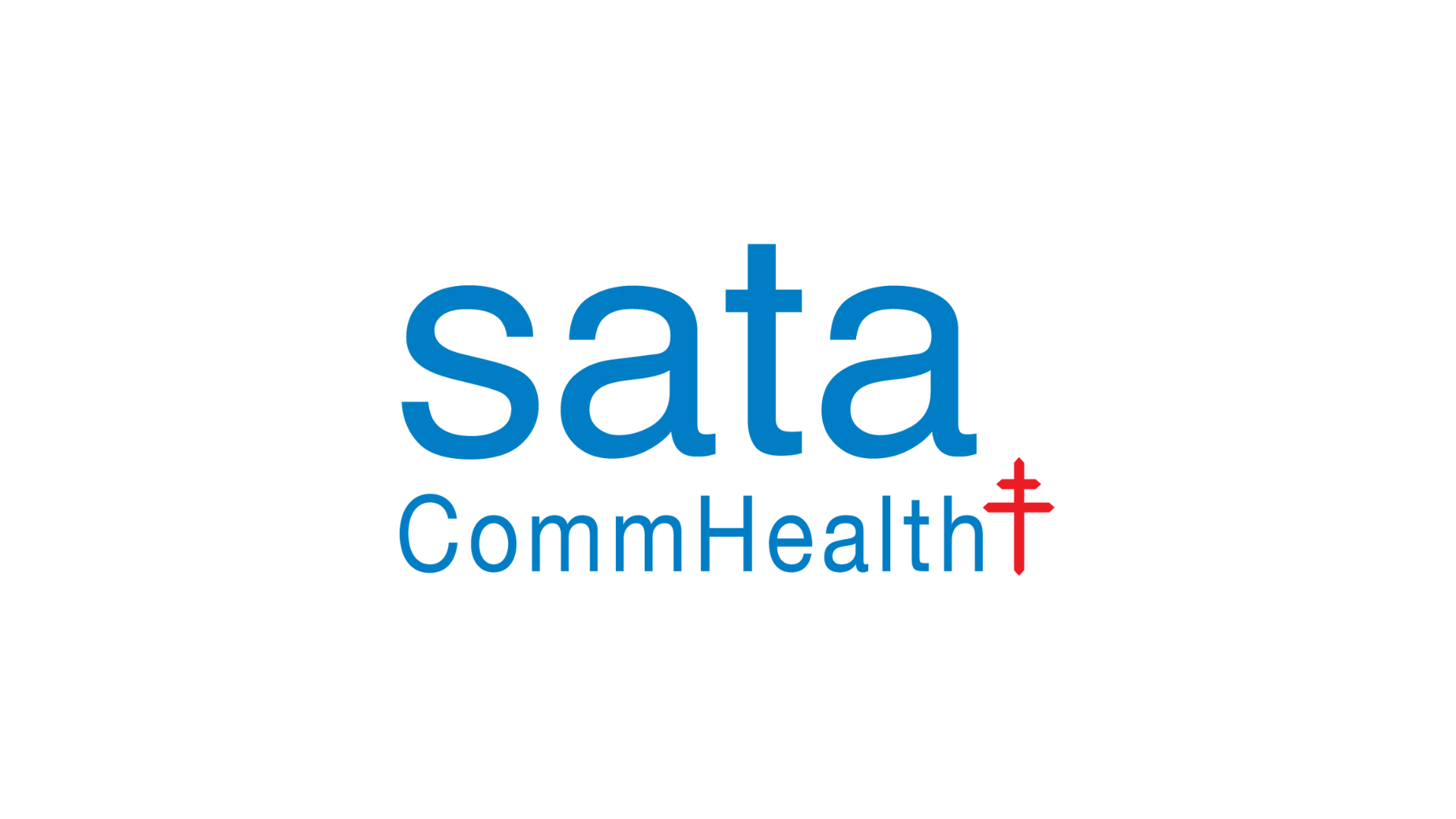Events

Gastric cancer, also known as stomach cancer, is a silent killer as symptoms often only appear at a late stage. If cancer is detected early, timely life-saving treatment can be administered. ‘Stay CLEAR of Gastric Cancer’ is a gastric cancer screening campaign, organised to provide seamless access to sponsored gastric cancer screening for eligible individuals aged 40 years old and above.
Knowing your risk of gastric cancer and managing that risk by taking action to get screened regularly before you experience any symptoms is the key to early detection.
Screening Eligibility Criteria
- 40 years old and above
- Individuals with Blue/Orange CHAS card
Registration for the Stay CLEAR of Gastric Cancer Screening is now closed.
Keep an eye out for the next campaign!
About Gastric Cancer
Gastric (stomach) cancer is cancer that starts in the cells lining the stomach, specifically the inner mucosal layer of the stomach. As the cells grow uncontrollably, it spreads through the muscular and serosal layers of the stomach before metastasising to lymph nodes and distant organs such as the liver, lungs, and peritoneal surfaces.
According to the Singapore Cancer Registry 2021 Annual Report, between 2017- 2021, stomach cancer affects almost 600 cases yearly, and it’s the eighth most common cancer in men and tenth most common cancer in women. The mortality rate is approximately 53% of stomach cancer occurrences; about 5% of cancer deaths. The reason for this high mortality is the late detection of stomach cancer. Worldwide, stomach cancer causes approximately 800,000 deaths annually.
Close to 90% of patients diagnosed with stage 1 gastric cancer have good outcomes with curative treatment. Hence, it is highly encouraged for individuals to go for routine checks for gastric cancer.
Gastric cancer is usually diagnosed through endoscopy, a procedure perceived to be expensive and invasive as it involves inserting a thin tube with a camera into the patient’s mouth all the way down to the stomach. The endoscopy consists of a gastroscope examination and a tissue biopsy. The gastroscope examination usually takes about 15 minutes and the results will be released on the same day. If doctors suspect that the patient might have cancer, a tissue biopsy will be done and the report will typically take up to a week. According to the Ministry of Health’s website, an endoscopy costs around $200 to $800 with medical subsidy.
A more affordable and non-invasive alternative to detect gastric cancer in its early stages is a test kit known as Gastroclear. It is a blood test that can accurately detect cancer. It works by looking out for patterns of microRNA – which regulate the gene expression in the blood sample. Most cancers, including gastric cancer, secrete abnormal levels of microRNA into the blood. Gastroclear can detect 87% of all gastric cancers, including 87.5% of stage 1 cancer, compared to conventional blood tests in the market which only has an accuracy rate of 50 – 60%. It is priced under $200 at public hospitals and the test will take approximately 3 hours to run in a clinical lab. Results can be delivered to the patient’s doctor within a week.
Gastroclear blood test can be done on an annual basis to test for gastric cancer.
Signs and Symptoms
Individuals with gastric cancer may not show noticeable signs or symptoms in its early stages. The high mortality rate is because many patients are often diagnosed in later stages when treatment is often more difficult and less effective.
Here are some of the symptoms of gastric cancer (stomach cancer):
- Upper abdominal pain or discomfort (Dyspepsia)
- Constant indigestion
- Bloating or belching
- Loss of appetite
- Unintended weight loss
- Black stools
- Heartburn
- Nausea and vomiting
- Symptoms of anemia
Causes and Risk Factors
knowing your risk of gastric cancer and managing the risks by taking action to get screened regularly before experiencing any symptoms is the key to early detection. Some of the causes and risk factors of gastric cancer include:
- Age (more common after 50 years old)
- Gender (more common in men)
- Family history of gastric (stomach) cancer
- History of Heliobacter Pylori
- Medical history of gastritis and other stomach illnesses
- Lifestyle and diet:
- Obesity
- Tobacco smoking
- Alcohol drinking
- High intake of salted, pickled, and smoked foods
- Low intake of fruits and vegetables
How to Prevent Gastric Cancer
Preventive measures to lower risk of gastric cancer:
- Reduce the consumption of salted and preserved foods
- Adopt a diet with high intake of fruits, vegetables. Vitamin A and C appear to lower the risk of gastric (stomach) cancer.
- Avoid smoking and inhaling second-hand smoke
- Exercise regularly and maintain a healthy weight
Screening Process
Step 1 – Register with 365CPS
Click on the “Register” button at the bottom of this page, complete and submit the online registration form.
Upon submission, our staff will respond to you in 5 working days.
Eligible individuals will receive a Confirmation Letter endorsed by 365CPS.
Step 2 – Schedule An Appointment
Once you receive the Confirmation Letter endorsed by 365CPS, kindly contact the selected clinic directly to schedule an appointment.
Kindly bring along your NRIC and Confirmation Letter for your appointment.
Step 3 – Consultation and Blood Test
The appointment will involve a blood test to detect gastric cancer and a consultation with a doctor.
Step 4 – Review
A risk-level assessment will be done based on the test results. Should your results indicate a higher risk for gastric cancer, a referral letter will be issued to refer you to a public health setting for further investigations.



